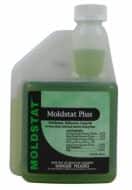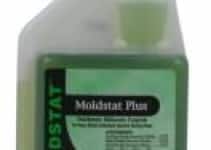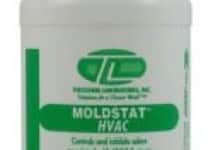Can I Use MoldStat Plus to Clean Marble and Granite?
Another in an ongoing series of posts prompted by customer questions, this post about the safety of using MoldStat Plus on marble or granite surfaces originated from an inquiry from a customer who wanted to go into a retirement business of headstone cleaning in cemeteries. The customer wanted to be sure that MoldStat Plus would be safe for the stones most commonly used in headstones, marble and granite, and he was further attracted to MoldStat Plus because he had noted that it is approved by the United States Environmental Protection Agency (EPA) and that gave him a degree of confidence that he wouldn’t be harming the environment, provided he followed all instructions for use as provided with all MoldStat Plus products. While the customer’s inquiry was quite specific, it has broad application when it is considered that marble, and even more so granite, are increasingly stones many of us have in our homes, particularly in our kitchens and bathrooms, and knowing how and with what to clean these surfaces is an important knowledge base for an increasing number of people.
Sealed or Not Sealed?
A critical factor to be aware of when selecting a cleaning method for granite or marble surfaces is whether that surface has been chemically “sealed” or not. Most of the time, countertop surfaces and tub/bath enclosures made of granite or marble will be sealed, often at the time of installation by the installer, but it is always very important to be sure you know if the stone surfaces in your home are sealed or not. We are aware of some granite tops to bedroom nightstands that were NOT sealed upon purchase and even something as seemingly innocent as a glass of ice water left a ring on the stone! This is because both marble and granite are porous stones that will absorb most any liquid like a sponge! They are hard, yes, but they are still porous and the chemical sealing process is designed to prevent this type of staining and damage. Once a stone is sealed it is fairly impervious to most chemicals, although there are some significant exceptions to look out for. NEVER use a strong acid, or a cleaner that contains any acid at all, to clean your stone work as acids will, over time, destroy the sealant, and in the case of marble will literally dissolve your stonework away into carbonate ion and hydrogen gas! Cleaners that are neutral or slightly basic in their pH are much safer to use on stone work.
What is “pH” anyway?
Simply put, pH is the measure of how acidic or basic something is. The lower the number, the more acidic it is, so something with a pH of 1 is a strong acid like hydrochloric acid, and while you might not think you would find that in the cleaning aisle at the grocery store, you would be surprised at how commonly it, and other acids like it, are used in cleaners. On the opposite side of the scale, which goes up to 14, the higher the number the more basic something is, and one of the most basic of substances is sodium hydroxide, or lye, commonly found in oven cleaners. Depending on the surface in question, including human skin, things that are either very acid or very base can be destructive. Pure water is exactly in the middle with a pH of 7. The pH scale is what is referred to as a logarithmic scale, so the difference between, say a pH of 4 and 5 is not one, but rather a factor of 10, meaning that a cleaner with a pH of 4 is ten times more acid than one with a pH of 5. For cleaning stone surfaces, especially marble, it is best to use a cleaner that is close to 7 or higher, never one that is lower, or more acidic.
MoldStat Plus and Related Cleaners for Are Safe for Stone!
Of the cleaners that we sell at CleanerToday.com, any of the items in the MoldStat line of products would be ideally suited for cleaning sealed stone surfaces in the kitchen, bathroom, or anywhere else in the house. While the pH of MoldStat Plus concentrate is listed as being as high as 12, once it is properly diluted according to manufacturer instructions, the pH falls considerably, down to the range of 9. Any time a base or an acid is diluted with water the pH will fall, or rise, closer and closer to 7, as is the case here. A pH of 9 makes MoldStat Plus a mildly basic cleaner which is certainly mild enough to be safe for sealed stones. In fact, some stone cleaning experts recommend the use of household ammonia, or ammonium hydroxide, solutions for stone cleaning, and such solutions routinely measure about 11 on the pH scale, so as we discussed, that would make ammonia 20 times more basic, or potentially corrosive, than properly diluted MoldStat Plus! And don’t let the name fool you. MoldStat Plus, when diluted, makes a very effective general purpose cleaner regardless of whether you have mold or not. Additional products in the MoldStat line may answer your more specific cleaning needs, but MoldStat Plus concentrate makes literally gallons of excellent multi-purpose cleaner for pennies per spray due to its super concentration of 1 part cleaner to 128 parts water. It can even be used in the washing machine!
Outdoor Stone Cleaning with the MoldStat Family of Cleaners
In the specific case of headstones in a cemetery setting, MoldStat Plus would be perfectly safe for cleaning, even though these items are not usually sealed. MoldStat Plus, and some other cleaners sold by Cleaner Today.com,won’t damage even unsealed stones. Be aware that water alone may cause some degree of initial discoloration but this will have already happened to outdoor monuments exposed to rain. This effect will be much less noticeable in granite than in marble. MoldStat Plus does not contain any bleaching agents so it won’t remove the coloration of mold or algae by itself. It will be necessary to gently scrub away the now dead mold and algae from the surfaces and rinse thoroughly to achieve the best results. In an outdoor setting such as a cemetery where it is impossible to control future moisture, which will inevitably lead to additional growth of mold and algae, another cleaner in the MoldStat family, MoldStat Barrier could potentially be an ever more appropriate choice.  MoldStat Barrier, like MoldStat Plus, is perfectly safe for stone surfaces, sealed or not, but unlike MoldStat Plus alone, MoldStat Barrier includes a residual mold killer that will continue killing mold for up to six months after application, no rinsing required. Outdoor mold cleaning and killing, therefore, might ideally consist of first removing the existing buildup of mold and algae with properly diluted MoldStat Plus, or another cleaner in the MoldStat family such as PeroxyKling for especially stubborn stains, and then a final light misting rinse with MoldStat Barrier to help prevent regrowth for up to six months.
MoldStat Barrier, like MoldStat Plus, is perfectly safe for stone surfaces, sealed or not, but unlike MoldStat Plus alone, MoldStat Barrier includes a residual mold killer that will continue killing mold for up to six months after application, no rinsing required. Outdoor mold cleaning and killing, therefore, might ideally consist of first removing the existing buildup of mold and algae with properly diluted MoldStat Plus, or another cleaner in the MoldStat family such as PeroxyKling for especially stubborn stains, and then a final light misting rinse with MoldStat Barrier to help prevent regrowth for up to six months. 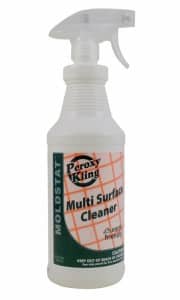 Future cleanings are certain to be much less involved as mold will have been inhibited meaning less growth to remove in the future.
Future cleanings are certain to be much less involved as mold will have been inhibited meaning less growth to remove in the future.
Stone Cleaning with the OX Line of Cleaners
Yet another option provided by CleanerToday exclusively is the OX line of products for outdoor cleaning such as SidingOX. The OX line of products will easily kill mold and algae on outdoor surfaces with an added advantage of being powered by hydrogen peroxide which provides gentle bleaching action on white surfaces while not damaging colored surfaces in any way. Simply prepare the OX according to instructions, spray, delay, and lightly scrub to reveal gleaming surfaces. Hydrogen peroxide is not at all acidic and is in fact recommended for the removal of stains on stone surfaces by many stone cleaning experts. The OX product line is so gentle yet effective that we frequently use it as a stain remover in the laundry room and it hasn’t harmed a fabric or dye yet.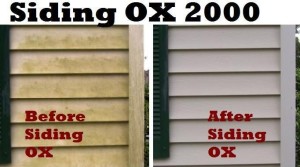
Products Safe for Grass and Plants
And yet another plus in choosing either a product from the MoldStat family such as MoldStat Plus or the OX line of products is that all of these cleaners are safe to use around or even on grass and plants. In fact, a common use of MoldStat Plus, properly diluted of course, is to control mold and algae in commercial greenhouses, so if the product is safe for use with commercially grown plants it is certainly safe for your grass and shrubs, including, of course, those in a cemetery setting.
CleanerToday.com is Ready to Help!
Here at CleanerToday.com we are always ready and happy to answer your questions about safely and effectively using our products to help you clean most anything to ensure that you have a cleaner tomorrow starting today!
